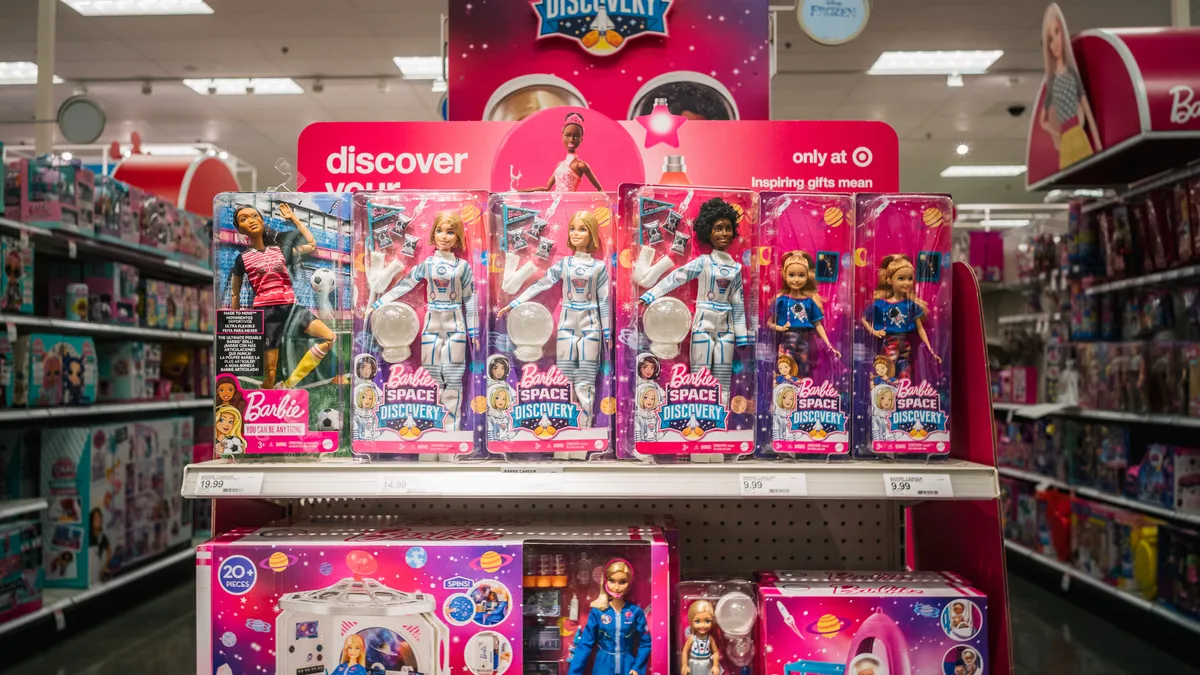Dive Brief:
- Mattel's first quarter sales were up 19% year over year, ahead of analyst expectations and the highest Q1 results on record, despite ongoing supply chain struggles.
- While the toy giant's gross margin shrunk by 70 basis points, operating income rose 136% to $80 million for the quarter, according to a release.
- "Having completed our turnaround in 2021, we are firmly in growth mode and operating as an IP-driven, high-performing toy company," Mattel CEO Ynon Kreiz said in a statement, adding that the company expects to grow market share.
Dive Insight:
While Mattel faces plenty of operational challenges, it has risen during the pandemic and the boost it gave to the toy category.
Kreiz pointed to the company's supply chain as a source of strength. "All of our factories are fully operational," the chief told analysts in prepared remarks. "And we are working with our retail partners to ensure product is available on shelves to meet consumer demand. While we're monitoring macro level factors affecting supply chain and the broader economy, we are confident in our growth trajectory."
Among other moves to bolster its supply chain, Mattel has consolidated its manufacturing in Mexico with a "state-of-the-art facility [that] will help to diversify [Mattel's] supply chain footprint and optimize nearshoring of production," Kreiz said.
D.A. Davidson's Linda Bolton Weiser, a senior research analyst and managing director, called Mattel's Q1 performance "very strong" and "impressive" in a research note, while analysts at UBS called it a "blowout quarter."
Bolton Weiser noted that, while Mattel's gross margin shrunk in Q1 due to cost inflation, it came in larger than analyst estimates, boosted in part by price hikes.
The UBS team pointed out in a note that Mattel is leaving its guidance on sales this year in place, despite the impact from the Russian war in Ukraine, which means the company is "effectively raising guidance" given the analysts' estimates that the situation could mean up to a 3% hit to Mattel's top line.
While the company is working to monetize its intellectual property from entertainment — Mattel, for example, recently signed with J.J. Abrams' Bad Robot production company to make a Hot Wheels movie — it is also making money from old-fashioned toy sales.
Action figure sales were up 75%, driven by Jurassic World, Lightyear and Masters of the Universe lines, Kreiz told analysts. Mattel's toy vehicles category was up 36%, while dolls — led by Barbie and Polly Pocket — were up 8%. Among other licensing moves, Mattel won the rights this year to make Disney Princess and Frozen toys, a role previously filled by rival Hasbro.
As Mattel puts behind it prior years of struggles — which include the death of the old Toys R Us — the company has held talks with potential private equity suitors, according to reports in the financial media.
The company would not comment on the reports during the earnings call, saying only that Mattel is "focused on executing our strategy to grow Mattel's IP-driven toy business and expand our entertainment offering."
Bolton Weiser said of a possible buyout that "we think [it] is possible" given that Kreiz has sold companies in the past. Bolton Weiser added that "we think [Kreiz] is frustrated with the stock's relatively low valuation despite nearly flawless execution, a robust growth outlook, and ownership of some of the biggest brands in consumer products."
















